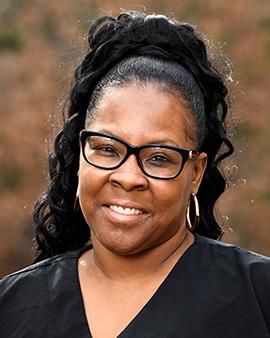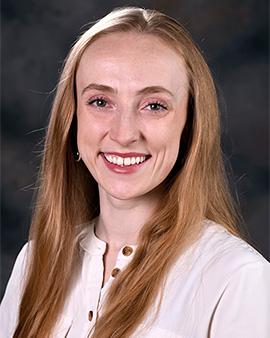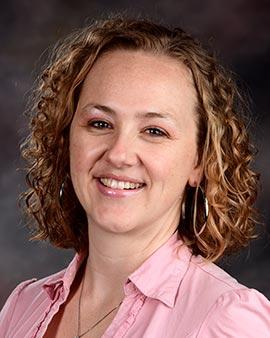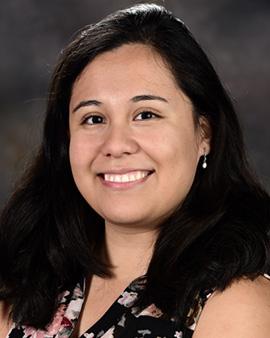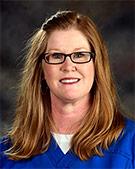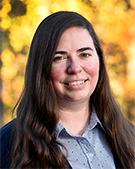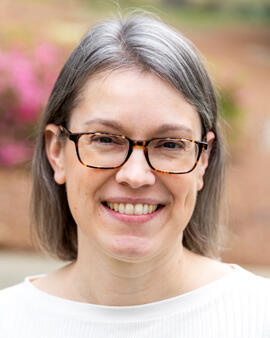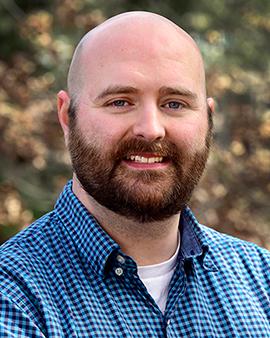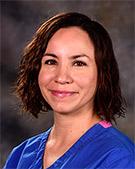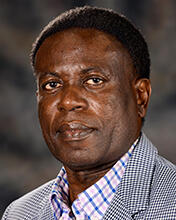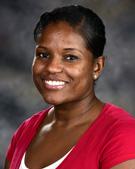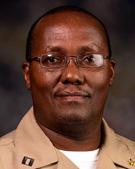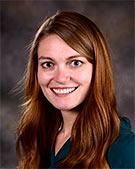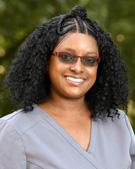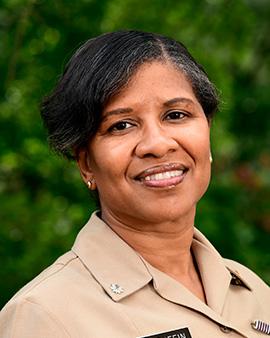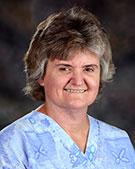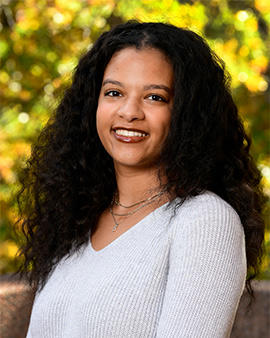
Researchers
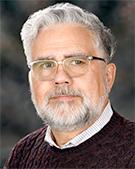
Francesco J. DeMayo, Ph.D.
francesco.demayo@nih.gov
Francesco DeMayo, Ph.D., is Chief of the Reproductive and Developmental Biology Laboratory, and leads the Pregnancy and Female Reproduction Group. He also holds a secondary appointment in the NIEHS Immunity, Inflammation, and Disease Laboratory.
The Pregnancy and Female Reproduction Group goal is to define the molecular mechanisms regulating normal reproductive tract and pulmonary function. The accomplishment of this will allow a better understanding how these tissues are impacted by the environment. We will be better able to determine how the endocrine disruptors impact the ability of the reproductive tract to initiate and maintain pregnancy. Also we will determine how these factors impact the development of reproductive diseases such as endometriosis and endometrial cancer. We will also be able to determine how environmental insults impact the progression and development of pulmonary diseases such as lung cancer.
Research Webpage
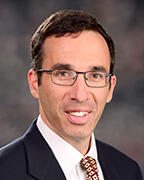
Michael B. Fessler, M.D.
fesslerm@niehs.nih.gov
Dr. Michael Fessler received his medical degree at Harvard Medical School in 1996, and followed this with internal medicine residency training at Massachusetts General Hospital and pulmonary/critical care medicine training at University of Colorado. While at University of Colorado as a physician scientist, Dr. Fessler developed expertise in research into the human immune system, focusing in particular on macrophages and neutrophils, white blood cells that protect the body from infection, but that can also cause damaging inflammation in the lungs and other organs. In 2006, Dr. Fessler moved to NIEHS to start his own laboratory, which conducts a wide range of basic (cell-based) and clinical (epidemiology, patient-based) studies that aim to identify mechanisms by which the immune system gets activated, and how we may intervene in its activation to treat or prevent lung diseases such as pneumonia, acute lung injury, and asthma. As Chief of the Immunity, Inflammation and Disease Laboratory at NIEHS, he now oversees a department of research laboratories focused on the study of immune-mediated diseases. In his own work, Dr. Fessler has identified variations in the DNA code that put patients at heightened risk of damaging inflammation, has identified a role for household dust bacteria in driving inflammation in healthy people, has discovered new ways by which high cholesterol causes inflammation, and has also identified new potential drugs for treating immune system overactivation. His ongoing studies on immune cells collected at the NIEHS Clinical Research Unit, made possible by the generous participation of volunteer blood donors, ultimately aspire to advance our understanding and treatment of inflammatory diseases in humans.
Research Webpage
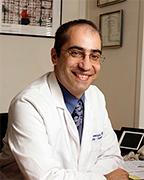
Stavros Garantziotis, M.D.
garantziotis@niehs.nih.gov
Stavros Garantziotis, M.D. is passionate about finding cures for chronic lung disease like asthma, COPD and pulmonary fibrosis. He believes that if we can understand the mechanism of disease development for every individual patient, we can design intelligent and effective treatment with less side effects. Dr. Garantziotis obtained his medical degree at the Albert-Ludwigs-University in Germany. He trained in Internal Medicine at the Albert Einstein College of Medicine in New York and in Pulmonary and Critical Care Medicine at Duke University Medical Center, where he was a faculty member before joining NIEHS.
Research Webpage
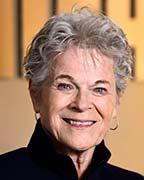
Janet E. Hall, M.D., M.S. (Retired)
janet.hall@nih.gov
Janet E. Hall, M.D., M.S. is an internationally known clinician and clinical researcher. She received her Masters of Medical Sciences in exercise physiology and her M.D. and Internal Medicine training at McMaster University in Ontario, Canada. She completed her training in Endocrinology and Metabolism at Massachusetts General Hospital in Boston and rose to the rank of Professor of Medicine at Harvard Medical School. She had continuous NIH extramural grant funding until moving to the NIEHS intramural program in 2015. Hall was elected to the Association of American Physicians in recognition of her contributions to both the science and academics of medicine and, as a leader in the field, is a former President of the Endocrine Society.
Watch Video
Research Webpage

Anne Marie Jukic, Ph.D.
jukica@niehs.nih.gov
The Fertility and Reproductive Health Group is led by Anne Marie Z. Jukic, Ph.D., who also works in the Reproductive and Developmental Biology Laboratory. Her work focuses on factors that affect or change reproductive function (e.g., ovulation and menstrual cycles), conception, implantation, placental development, and pregnancy outcomes. Given the financial and emotional burden of fertility problems and pregnancy loss, this research has broad and immediate public health relevance.
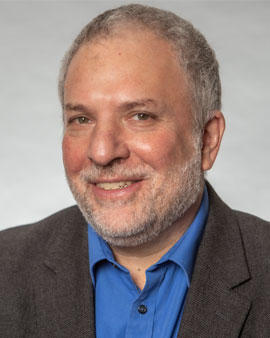
Lawrence S. Kirschner, M.D., Ph.D.
lawrence.kirschner@nih.gov
Lawrence S Kirschner, M.D., Ph.D. has recently joined the NIEHS as the new Medical Director of the Clinical Research Unit and member of the CRB. Dr. Kirschner obtained his undergraduate degree from Princeton University, followed by dual-degree training at the Albert Einstein College of Medicine. During his PhD, he studied mechanisms of multidrug resistance in cancer cells in the lab of Dr. Susan Horwitz. After completing a residency in Internal Medicine at the University of Minnesota, he moved to the NIH in Bethesda for a clinical fellowship in Endocrinology, followed by 3 years as a Staff Scientist. While there, he worked in the group of Dr. Constantine Stratakis, where he identified the gene causing the inherited tumor syndrome Carney Complex and began molecular characterization of its tumorigenic function. In 2002, he established his independent research program at The Ohio State University, where he continued his studies of molecular mechanisms of carcinogenesis associated with inherited endocrine tumor syndromes funded by the NIH and other national organizations. He maintained an active clinical practice during his time at Ohio State, and is recognized nationally and internationally as an expert in adrenal diseases and inherited tumor syndromes. He is also a well-established clinical researcher dating back to his days in Bethesda, and he has been a site PI for trials of new agents to treat endocrine disorders, including many which are now FDA approved. Lastly, he has a strong interest in education and mentoring, serving as as director of the Ohio State MD-PhD training program for over 10 years and being appointed as Associate Director of Education and Training at the OSU Comprehensive Cancer Center. He brings this wealth of experience and expertise to the leadership of our CRU. He will also serve as Director of Clinical and Laboratory Sciences for the PEGS program and devote some of his time to continuing his molecular studies of endocrine tumor formation.
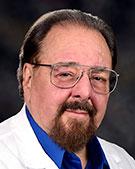
Frederick W. Miller, M.D., Ph.D. (Retired)
millerf@mail.nih.gov
Frederick W. Miller, M.D., Ph.D. oversees researchers in his group as well as others in national and international consortia that evaluate and conduct a wide range of basic and clinical studies on adult and juvenile autoimmune diseases. His interests are broad and he wishes to understand what triggers these diseases and how to best assess, treat, cure and ultimately prevent them. He obtained his M.D. and Ph.D. from Case Western Reserve University, went on to medical residencies at Emory and Stanford, and then did rheumatology and immunology training at the NIH. His work in the field of autoimmune diseases spans over three decades and involves many aspects of the phenotypes, environmental risk factors, epidemiology, immunology, genetics, pathogenesis, evaluation and treatment of immune-mediated diseases. He has focused much of his work on autoimmune muscle diseases.
Research Webpage

Joan P. Packenham, Ph.D.
packenhm@niehs.nih.gov
Joan P. Packenham, Ph.D., is the director for the Office of Human Research and Community Engagement and director for the Women’s Health Awareness Community Engagement Program. She is a passionate and strong advocate for women’s health as it relates to discovering the root causes of health disparities in underrepresented populations. Her goal is to empower communities to take responsibility for their health and understand the impact of the environment on their well-being by educating the community on health, well-being, and chronic disease prevention and management Through community-engaged research, her program aims to promote health and improve health outcomes to build healthier, more resilient communities.
Dr. Packenham graduated Magna Cum Laude with a B.S. in biology from North Carolina Central University and received a Ph.D. in molecular and cellular pathology from the University of North Carolina at Chapel Hill, School of Medicine, Pathology Department. She completed her Post-Doctoral Fellowship at the National Institute of Environmental Health Sciences, Laboratory of Molecular Carcinogenesis.
Research Webpage

Lisa Rider, M.D. is Deputy Chief of the Environmental Autoimmunity Group, and a pediatric rheumatologist with an international reputation for her work on juvenile myositis. She received her B.A. and M.D. from Duke University, completed a pediatrics residency at Seattle Children’s Hospital of University of Washington, and her fellowship in pediatric rheumatology at Seattle Children’s Hospital, Children’s National Medical Center, Washington D.C. and the National Institute of Arthritis and Musculoskeletal and Skin Diseases, National Institutes of Health, Bethesda, MD. She then joined Dr. Frederick Miller’s group in the Center for Biologics Evaluation and Research, Food and Drug Administration and subsequently moved to NIEHS in Bethesda, MD. Dr. Rider’s work has been focused on environmental and genetic risk factors, phenotypes, pathogenesis, outcomes, evaluation, and therapeutic trials in juvenile myositis and other systemic pediatric rheumatic diseases. She has co-led national and international myositis collaborative research groups, and authored from than 170 research publications, reviews, books, and book chapters. She has received several awards of distinction.
Research Webpage
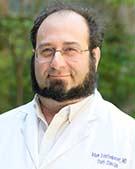
Adam I. Schiffenbauer, M.D.
adam.schiffenbauer@nih.gov
Adam Schiffenbauer, M.D. is an Associate Research Physician in the Environmental Autoimmunity Group, and an adult rheumatologist with an expertise in myositis. He received his B.A. from The University of Chicago and his M.D. from Pennsylvania State University. He completed an internal medicine residency at George Washington University, and his fellowship in rheumatology at the National Institute of Arthritis and Musculoskeletal and Skin Diseases, National Institutes of Health, Bethesda, MD. He then joined Dr. Frederick Miller’s group in NIEHS in Bethesda, MD. Dr. Schiffenbauer’s work has been focused on environmental and genetic risk factors, phenotypes, pathogenesis, advanced imaging, evaluation, and therapeutic trials in myositis.
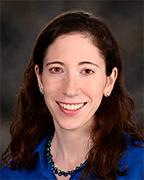
Natalie D. Shaw, M.D., MMSc.
natalie.shaw@nih.gov
Natalie D. Shaw, M.D., M.M.Sc. received a B.S. from Cornell University, an M.D. from the State University of New York (SUNY) at Buffalo, and a Masters in Medical Sciences (MMSc) from Harvard Medical School. She completed her pediatrics residency at Children's Hospital of Pittsburgh, a pediatric endocrinology fellowship at Boston Children's Hospital, and a clinical research fellowship in the Reproductive Endocrine Unit at Massachusetts General Hospital.
In 2015, Shaw was one of five junior researchers selected as a Lasker Clinical Research Scholar by the National Institutes of Health. The Lasker program is a joint partnership between the NIH and the Lasker Foundation designed to support a small number of exceptional clinical researchers in the early stages of their careers. Its goal is to promote the development of physician-scientists as they transition to fully independent positions. When Shaw joined NIEHS in September 2015, she became the first Lasker Scholar in the history of the institute.
Research Webpage
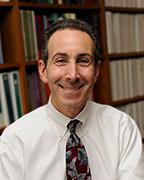
Darryl C. Zeldin, M.D.
zeldin@niehs.nih.gov
Darryl C. Zeldin, M.D. is a Senior Investigator and the Scientific Director at the National Institute of Environmental Health Sciences, National Institutes of Health (NIEHS/NIH). He is an internationally recognized expert in environmental causes of asthma. Dr. Zeldin received his medical degree from Indiana University in 1986. He completed an Internal Medicine Residency at Duke University Medical Center in 1989 and a Fellowship in Pulmonary/Critical Care Medicine at Vanderbilt University in 1993. He was recruited to the NIH in 1994 and promoted to Senior Investigator with Tenure in 2001. He directs an asthma research program at NIH which involves both basic and clinical studies. Dr. Zeldin is Board Certified in Internal Medicine and Pulmonary Medicine, is a Fellow in the American College of Chest Physicians, and is an elected member of the American Society for Clinical Investigation and the American Association of Allergy, Asthma and Immunology. He has served on a number of international asthma advisory groups including the National Asthma Education and Prevention Program. Dr. Zeldin has co-authored more than 300 peer-reviewed articles and book chapters, and his work has been cited more than20,000 times. His research has also been featured on NPR, Good Morning America, USA Today, U.S. News and World Report, PBS, and other nationally recognized media venues. He is passionate about finding cures for asthma and has led many studies that have identified important environmental triggers for asthma exacerbations.
Research Webpage
Support Staff
Last Reviewed: September 8, 2025



